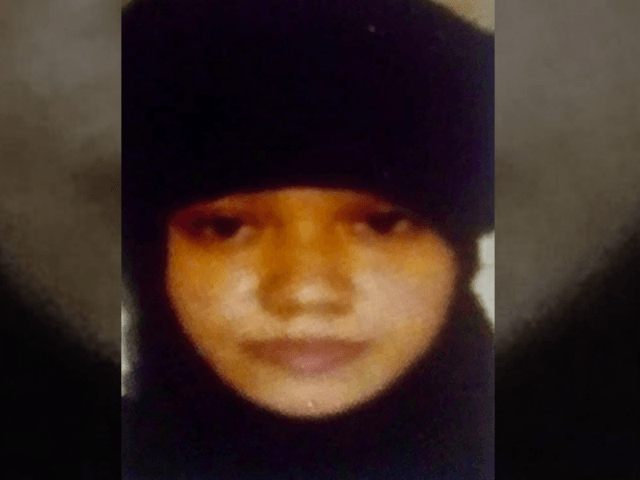The Filipino army arrested the fugitive wife of a top jihadi leader of the Islamic State (ISIS/ISIL)-linked Maute terrorist group, the predominantly Christian country’s armed forces reportedly confirmed on Monday.
“Nafisa Pundog, who had been in hiding for two years since her escape from prison, was arrested in General Santos City, said army spokesman Major Ezra Balagtey,” Reuters reports. “Her husband Human Abdul Najib, alias Abu Dar, is the new leader of the pro-Islamic State Maute group, which seized the lakeside town of Marawi for five months last year, he added.”
“She did not resist arrest,” Maj. Balagtey declared, noting that authorities found bomb-making materials in her hideout.
In a separate raid close to the hideout, the soldiers killed Najib Pundog, a suspected explosives expert.
“He chose to shoot it out with soldiers who tracked him down in his safe house,” Balagtey noted.
There are no family ties between Nafisa and Najib despite sharing the same last name.
Both were on a list of individuals who President Rodrigo Duterte wanted authorities to arrest when he imposed martial law in the southern island of Mindanao, home to Marawi and the majority of Filipino Muslims in the predominantly Christian nation.
U.S. officials have officially designated “ISIS-Philippines and the Maute Group” as a foreign terrorist group in response to the siege of Marawi, which began in May 2017, and the attempted terrorist attack near the U.S. Embassy in Manila in November of the previous year
In October 2017, the military of the Catholic-majority Philippines ended its combat mission in the embattled Marawi City after killing the leaders of the nation’s two ISIS affiliates — Isnilon Hapilon of Abu Sayyaf and Omar Maute of the Maute group — and allegedly dismantling the remnants of a jihadi rebel alliance. ISIS overran Marawi in May.
The months-long battle of Marawi, the capital of the province of Lanao del Sur on the southern island of Mindanao, resulted in the deaths of more than 1,100 people, primarily jihadists, and the displacement of an estimated 350,000 others.
While the U.S.-led coalition and its local allies have decimated ISIS’ territorial caliphate in Iraq and Syria, the fate of the group’s branches across various corners of the world, mainly Asia and Africa, remains uncertain.
Acknowledging the group’s various wings — ISIS West Africa, ISIS Somalia, ISIS Egypt, ISIS Bangladesh, ISIS Philippines, the Maute Group in the Philippines, and Jund al-Khilafah Tunisia — the U.S. State Department declared in March that the jihadist organization is “adapting” to the demise of its so-called caliphate in the Middle East.
Despite ISIS’s defeat in the Philippine city of Marawi, Filipino Defense Secretary Delfin Lorenzana conceded that the group’s ideology remains a threat to Southeast Asia.
“Lorenzana acknowledged that the tactical triumph in Marawi will not eliminate Islamic State’s ideology in the Philippines, and called for stronger regional cooperation to fight the rising threat the terror group poses to Southeast Asia as fighters return home from the battlefields of Iraq and Syria,” Asia Times reported.
Southeast Asia is home to the world’s most populous Muslim country, Indonesia.
Following the death of the ISIS-Philippines emir at the hands of the Filipino military in October 2017 in Marawi, several news outlets reported that Philippine authorities suspect the jihadi outfit appointed Malaysian bomb-making expert Amin Baco as the new chief.
Filipino Police Chief Ronaldo de la Rosa also told Reuters he believed Baco had taken over the ISIS emir role in Southeast Asia.
Citing unnamed intelligence sources, Reuters reported that Baco escaped the Filipino military attack against jihadis in Marawi last year.

COMMENTS
Please let us know if you're having issues with commenting.